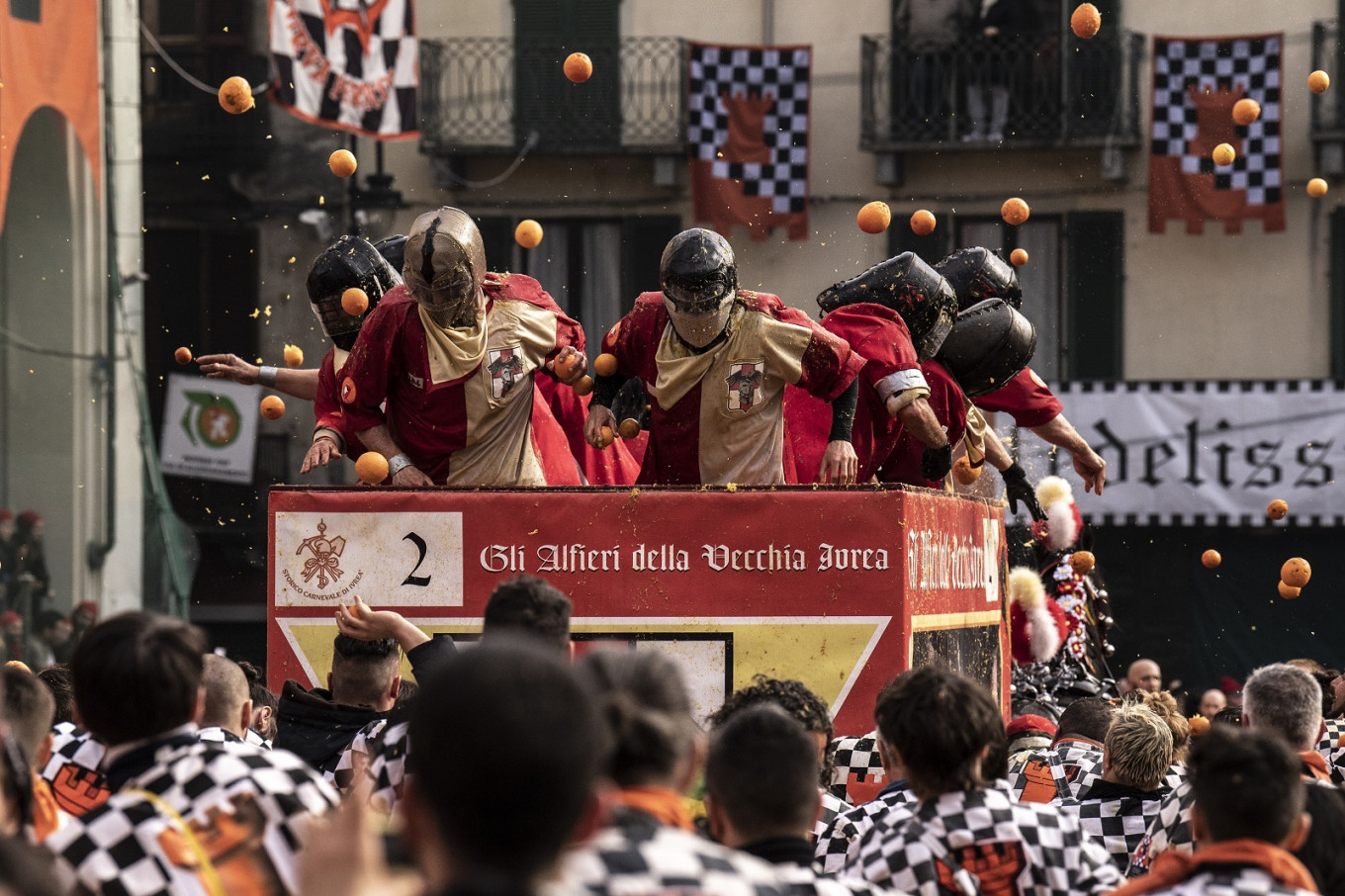Popular Reads
Top Results
Can't find what you're looking for?
View all search resultsPopular Reads
Top Results
Can't find what you're looking for?
View all search resultsRevelers across Europe get into the carnival spirit
Change text size
Gift Premium Articles
to Anyone
T
he European carnival season was in full swing Sunday, with revelers from east to west hurling fruit, lampooning political characters or simply giving their inner child free rein.
The Christian and Orthodox tradition occurs before Lent and also often includes depictions of death or the afterlife while turning conventional rules and customs on their head.
It was often a way to shake off the gloom of long winters with reminders that spring would come again.
Creative costumes level the social playing field, as anonymity is another recurring theme.
It has been said that the celebrated Venice masks were a way for the upper class to let their hair down without being recognized.
Food and drink are often consumed in great quantities before the pious give up treats for the long weeks of Lent that end with Easter.
Here's a look across Europe at some of the celebrations.
Italy
Teams threw oranges at each other during the traditional "battle of the oranges" held in Ivrea, near Turin.
During the event, which marks the people's rebellion against tyrannical lords who ruled the town in the Middle Ages, revelers parading on floats represented guards of the tyrant, while those on foot were the townsfolk.
Spain
"Boteiros" (jumpers) mark the traditional carnival of Viana do Bolo, in the northwestern Spanish region of Galicia.
'Zarramaco' characters chase people during the celebration of "El Gallo de Carnaval" (The Carnival's Cock) in Mecerreyes, in the northern Spanish province of Burgos.
The Gallo Carnival is a pagan festival in which people participate singing, dancing and attacking the 'Gallo' (cock) that is defended by 'Zarramacos'.
Read also: 2019 Jember Fashion Carnival to involve more than 6,000 participants
Croatia
A traditional carnival procession is a highlight at the Rijeka Carnival.
With more than 10,000 participants, the Rijeka Carnival claims to be one of the biggest in Europe.
Germany
The well-known carnival in Cologne, Germany, often features floats depicting political themes.
This year French President Emmanuel Macron was toppled by "yellow vest" demonstrators.
The Cologne Carnival is a months-long celebration that culminates in the days before Ash Wednesday, which falls on March 6 this year.
In Elzach, southern Germany, jesters wore capes and hats decorated with snail shells as they took part in the annual "Schuttigsprung" (Schuttig jump) parade (alternatively 'idiots parade').
Masked musicians participate in the "Schellenruehrer" (bell shaker) parade in Mittenwald, southern Germany. The noise is said to help chase away the winter blues.











